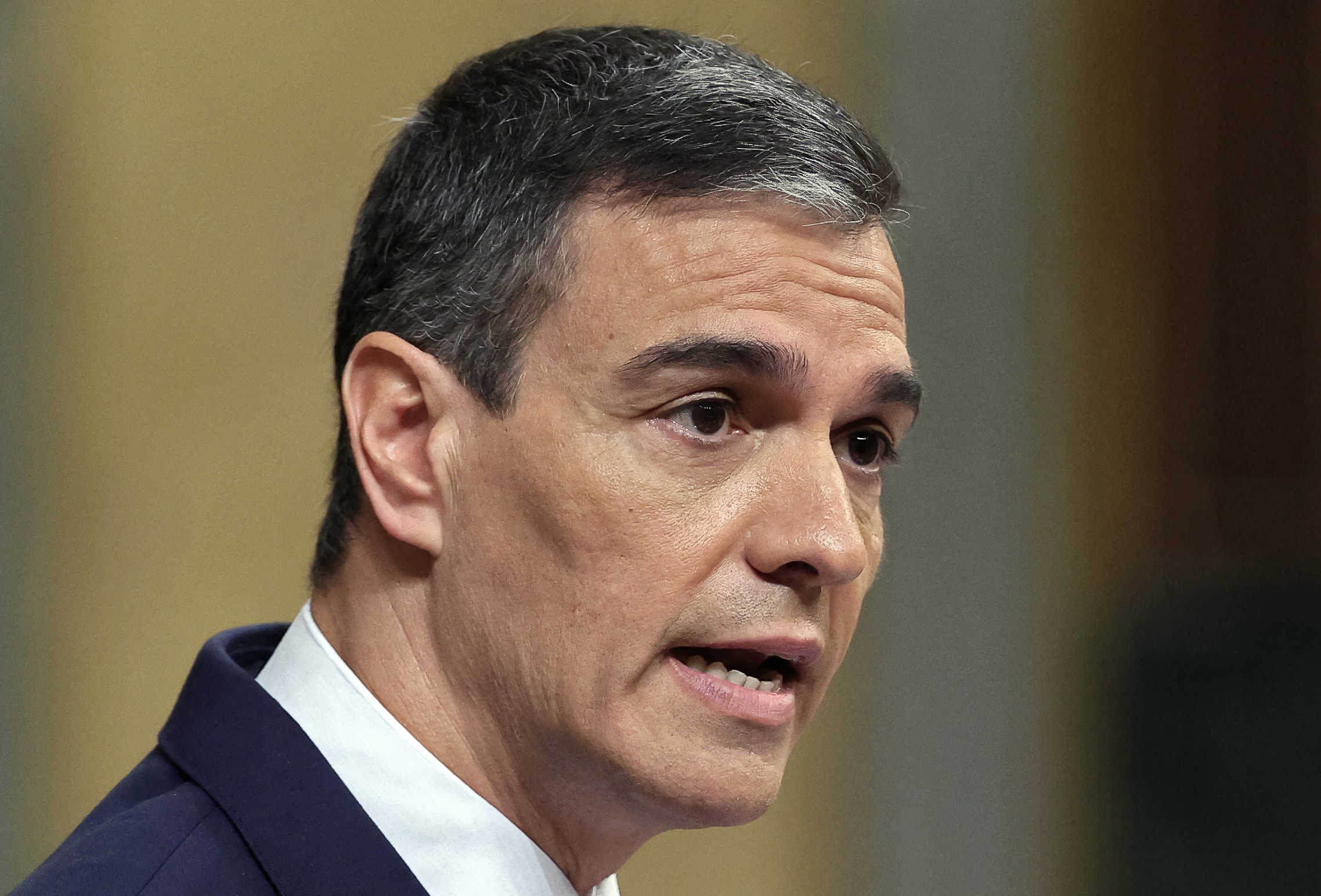Spain has been receiving some lavish praise of late in the British press. ‘Booming Spain is on track to a new age of prosperity’ was the headline in the Times last week, a response to the news that its GDP is forecast to grow by 2.5 per cent this year.
The Financial Times was similarly effusive about Spain’s economy in a piece last October, in which it quoted the country’s prime minister, Pedro Sánchez. ‘I can say that Spain is living an extraordinary moment. Our country is experiencing great success.’
The Times explained that Spain is growing at three times the rate of the Eurozone for three reasons: immigration, tourism and lower energy prices. Since 2022, Spain has welcomed one millions immigrants and they have snapped up 40 per cent of all new jobs created, predominantly in agriculture, hospitality and construction.
Nevertheless Spain’s unemployment rate is 10.6 per cent, the highest in the EU, which is why opposition MPs aren’t quite so upbeat. ‘When growth is based on public spending that you can’t maintain in a country with a high debt-to-GDP ratio, somebody should be concerned,’ said Juan Bravo of the People’s Party.
There is a fourth explanation as to why Spain’s economy is outperforming its EU rivals and that is because Spain is the new Germany when it comes to shirking on its defence commitments. Of the EU’s 27 member states, Spain’s defence expenditure as a share of GDP is the lowest, at just 1.28 per cent of GDP (which is around £17 billion). In contrast, Estonia, Greece, Latvia and Poland are all spending more than 3 per cent.
True, Spain’s 1.28 per cent is marginally up on the 0.9 per cent it forked out in 2014 but it is stark evidence that Spain – the fourth largest economy in the EU behind Germany, France and Italy – is not pulling its weight in defence. No country among Nato’s 32 members spends less on defence than Spain.
For years the slackers’ mantle in the EU belonged to Germany. Their frugality was good for their economy but not for their image abroad, particularly in America. Barack Obama was too polite to point it out – in public, at least – but that reticence changed when Donald Trump was first elected to office in 2016. Relations between the US and Germany hit rock bottom in early 2019 when Angela Merkel as chancellor broke a promise to increase spending to 1.5 per cent of GDP on defence. ‘NATO members clearly pledged to move toward, not away, from 2 per cent by 2024,’ said an angry Richard Grenell, the American ambassador to Germany. ‘That the German government would even be considering reducing its already unacceptable commitments to military readiness is a worrisome signal to Germany’s 28 Nato allies.’
Germany’s spending has subsequently increased to 2.12 per cent, a consequence of the war in Ukraine, which resulted in the launch of a €100 billion (£83 billion) special defence fund.
The fact that Merkel is no longer in office is also significant. She was always reluctant to increase Germany’s defence spending, particularly once Trump was in power. One began to sense the Chancellor was being deliberately wilful, part of her policy of establishing a role for herself as the leader of the ’progressive West’ against Trump, whom she regarded as the leader of the ‘regressive West’.
Since Merkel left office in December 2021 the progressive West has been leaderless. Emmanuel Macron had coveted the position, but since he lost his absolute majority in the 2022 legislative election his authority has been on the slide in France and across Europe. Merkel’s successor as chancellor, Olaf Scholz, has been a disaster, while Italy is led by Giorgia Meloni, no friend of progressives.
Trump is aware that Spain of all the EU nations is most hostile to his presence in the White House
That leaves Spain among Europe’s ‘big four’ nations. The Socialist party’s Sanchez is proud that under his premiership Spain is the most migrant-friendly country in Europe, because, as he declared last year, ‘We are the children of migration, not the parents of xenophobia!’
Sanchez also likes to flaunt his environmental credentials and his ambition is to turn Spain into a world leader in renewable energy. ‘Green, baby, green,’ he declared recently, a riposte to Trump’s promise in his inauguration address to ‘drill, baby, drill’.
Shortly after Trump’s election victory last November, Robert Benson of the Center for American Progress, one of the Democratic party’s most influential thinktanks, gave an interview to the Spanish media. Benson said that Trump’s re-election presented Spain with a ‘unique opportunity’. He elaborated: ‘With progressive leadership under Pedro Sanchez, it can play a pivotal role in countering authoritarianism globally… It’s crucial for leaders like Sanchez and PSOE [his Socialist party] internationally to carry the banner of a compassionate politics because the rest of the EU is unable in its current state.’
Trump appears to be aware that Spain of all the EU nations is most hostile to his presence in the White House.
After being sworn in for a second time, Trump was quick to criticise Spain’s reluctance to spend money on defence. Sanchez responded by saying ‘Spain is very committed to achieving this goal of 2 per cent of GDP on defence expenditure’.
But last week the Americas edition of the centre-right Spanish newspaper El Mundo said that Trump’s administration had snubbed Sanchez since taking office. The State Department had made calls to the foreign ministers of most European countries, including France, Poland, Germany and Italy, but no one had picked up the phone to Madrid.
‘The ideological differences between them are evident,’ said El Mundo, ‘and the Spanish leader seems to be seeking a role among those who openly clash with Trump’s worldview.’
Evidently the Spanish PM hasn’t felt the ‘vibe shift’ sweeping the West, and there will be only one winner if Sanchez takes on Trump. Even his ‘booming’ Spain is no match for America.









Comments